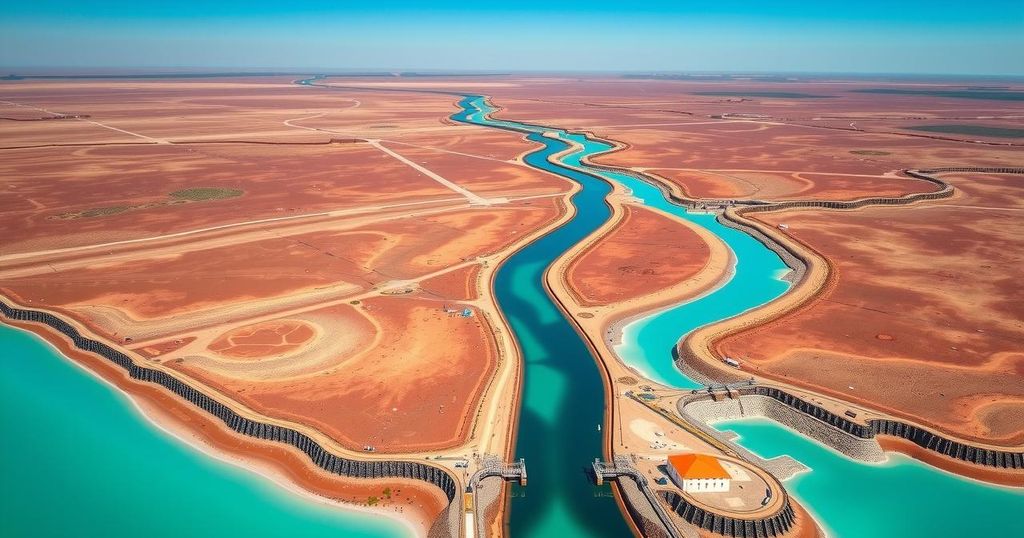Morocco’s Water Highway: Addressing Urban Water Shortages Amid Climate Challenges
Morocco has launched a “water highway” to redirect rivers from the north to alleviate water shortages in cities like Rabat and Casablanca, investing $728 million in the project. While it has thus far been effective, experts raise concerns about its sustainability against the backdrop of climate change and prolonged drought.
Morocco has invested approximately $728 million in a project termed the “water highway,” which redirects surplus flow from the Sebou River to supply drinking water to the densely populated cities of Rabat and Casablanca. This initiative aims to address water shortages exacerbated by climate change and longstanding imbalances in rainfall distribution across the country. Future plans include extending the project to provide water to Marrakesh.
Officials assert that the water highway has been essential in preventing a crisis, having supplied over 700 million cubic meters of drinking water by early March 2023. Mahjoub Lahrache, a senior official at the agriculture ministry, noted that the project has safeguarded water access for approximately 12 million people. However, concerns regarding the sustainability of this water supply persist, especially following a severe drought that has plagued Morocco for six consecutive years.
Extreme discrepancies in rainfall have historically affected Morocco, with 53% of the nation’s rainfall occurring in just 7% of its territory. This imbalance has led to an annual water supply decline from 18 billion cubic meters in the 1980s to merely 5 billion today. Recent studies indicate that northern water basins will face increased impacts from climate change, raising doubts about the availability of water surpluses for future redirection.
Experts warn that climate shifts could diminish the water supply in northern rivers, questioning the project’s long-term viability. Abderrahim Handouf emphasized the importance of adopting water-efficient irrigation techniques and investing in desalination as part of a comprehensive strategy to mitigate water scarcity in urban areas.
In summary, Morocco’s construction of the “water highway” represents a significant effort to combat pressing water shortages in urban areas like Rabat and Casablanca. However, the sustainability of this project remains under scrutiny due to ongoing droughts and the anticipated effects of climate change. Expert recommendations suggest that diversifying water sources and improving irrigation practices are essential for long-term water security in the region.
Original Source: www.swiowanewssource.com




Post Comment